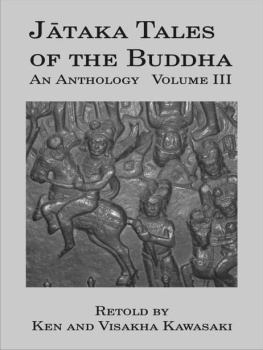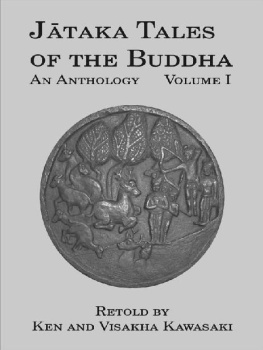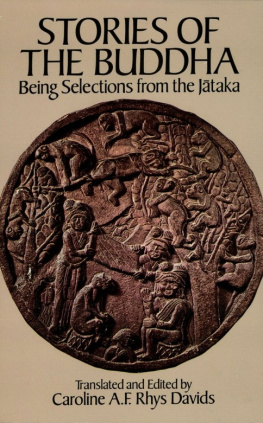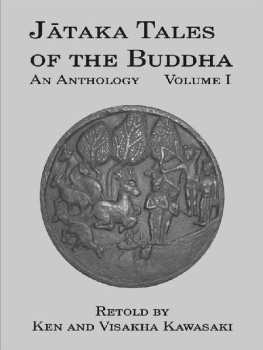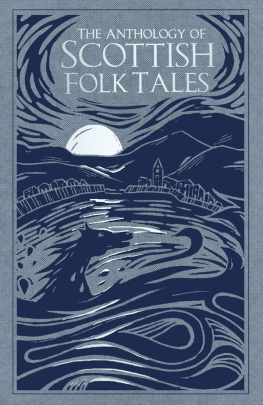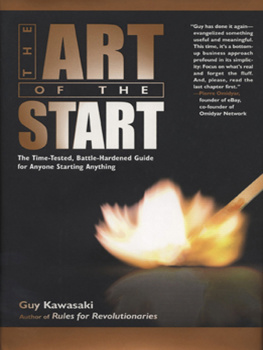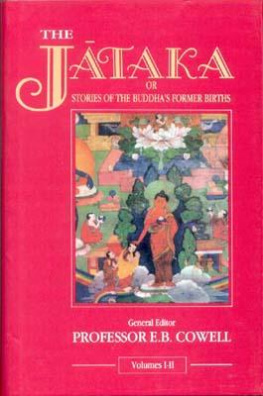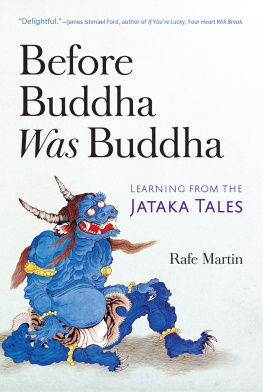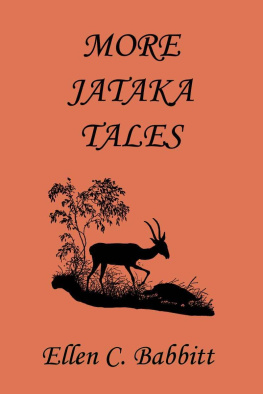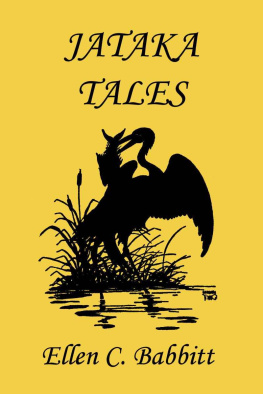Ken Kawasaki - Jataka Tales of the Buddha Volume III: An Anthology
Here you can read online Ken Kawasaki - Jataka Tales of the Buddha Volume III: An Anthology full text of the book (entire story) in english for free. Download pdf and epub, get meaning, cover and reviews about this ebook. year: 2011, publisher: Ken and Visakha Kawasaki, genre: Children. Description of the work, (preface) as well as reviews are available. Best literature library LitArk.com created for fans of good reading and offers a wide selection of genres:
Romance novel
Science fiction
Adventure
Detective
Science
History
Home and family
Prose
Art
Politics
Computer
Non-fiction
Religion
Business
Children
Humor
Choose a favorite category and find really read worthwhile books. Enjoy immersion in the world of imagination, feel the emotions of the characters or learn something new for yourself, make an fascinating discovery.
- Book:Jataka Tales of the Buddha Volume III: An Anthology
- Author:
- Publisher:Ken and Visakha Kawasaki
- Genre:
- Year:2011
- Rating:5 / 5
- Favourites:Add to favourites
- Your mark:
- 100
- 1
- 2
- 3
- 4
- 5
Jataka Tales of the Buddha Volume III: An Anthology: summary, description and annotation
We offer to read an annotation, description, summary or preface (depends on what the author of the book "Jataka Tales of the Buddha Volume III: An Anthology" wrote himself). If you haven't found the necessary information about the book — write in the comments, we will try to find it.
Jataka Tales of the Buddha Volume III: An Anthology — read online for free the complete book (whole text) full work
Below is the text of the book, divided by pages. System saving the place of the last page read, allows you to conveniently read the book "Jataka Tales of the Buddha Volume III: An Anthology" online for free, without having to search again every time where you left off. Put a bookmark, and you can go to the page where you finished reading at any time.
Font size:
Interval:
Bookmark:
An Anthology
Volume III
Ken and Visakha Kawasaki
N.A.P.G. Dharmawardena
Jtaka Tales of the Buddha
An Anthology
Volume III
Retold by Ken and Visakha Kawasaki
Copyright Ken and Visakha Kawasaki, 2009
Originally published as paperback by:
Buddhist Publication Society
Kandy, Sri Lanka
www.bps.lk
July 2010
This edition
published by Ken and Visakha Kawasaki
www.brelief.org
September 2011
ISBN: 978-1-937447-04-5
Cover Picture:
Vidhura-Pandita Jtaka, from the railing of the Bharhut Stupa
Indian Museum, Kolkata, India
Photo by authors
. The Prince of the Iron House Ayoghara Jtaka
. The Fifth Precept Kumbha Jtaka
. The Noble Six-Tusked Elephant Chaddanta Jtaka
. Its All the Kings Fault Gandatindu Jtaka
. The Taming of the Beauty Kusa Jtaka
. The Man-Eater of Jambudpa Mah-Sutasoma Jtaka
. Prince Temiya Mgapakkha Jtaka
. Mah-Janaka Mah-Janaka Jtaka
. Golden Sma Suvanna-Sma Jtaka
. King Nimis Grand Tour Nimi Jtaka
. The Suggestion Is Obscene Khandahla Jtaka
. Bhridatta, the Nga Prince Bhridatta Jtaka
. Wrong View Mah-Nrada-Kassapa Jtaka
. The Wise Vidhura-Pandita Vidhura-Pandita Jtaka
. Mahosadhas Incomparable Ingenuity Mah-Ummagga Jtaka
. Prince Vessantara Vessantara Jtaka
APPENDIX
lossary of Terms
lossary of Personal Names
he Thirty-one Planes of Existence
ap of Jambudpa
able of Correspondence
ibliography
ecommendations for Further Reading
The Prince of the Iron House
Ayoghara Jtaka

It was while staying at Jetavana that the Buddha told this story about the Great Renunciation. Bhikkhus, the Buddha said, this is not the first time that the Tathgata has renounced the world. He did the same long ago. Then he told this story of the past.
Long, long ago, when Brahmadatta was reigning in Brnasi, his chief queen had, in a previous life, been the second wife of a man whose first wife was barren. When the second wife had given birth to a son, the barren wife had become implacably jealous. As the barren wife was dying, she had made a terrible wish to be reborn so that she would be able to devour her rivals children. Getting her wish, she had been born as a yakkhin, and she remembered her grudge.
Shortly after the queen gave birth to her first son, the yakkhin found her way into the palace and grabbed the baby from the queens arms. The queen tried to shout, A yakkhin has snatched my son! but, before she could get the words out of her mouth, the yakkhin gobbled the baby up like a tender green onion and fled. The entire court was horrified, and the king had no idea how to protect the queen against a yakkhin.
The next time the queen gave birth, the king posted soldiers around her chamber, but the yakkhin, having disguised herself as a well-wisher, easily gained entry. As she drew near the bed, she transformed back into her real form, grabbed up the newborn boy, devoured him, and escaped once again.
When the queen became pregnant for the third time, the king asked his advisors how to protect the baby after birth. One advisor said that yakkhas were afraid of palms and suggested that the queen be surrounded by palm fronds. Another said yakkhas could not enter a building made of iron.
The king liked the latter idea and summoned the blacksmiths. He ordered them to build a house in a pleasant spot in the center of the city. It was to be a beautiful and comfortable dwelling with pillars and many rooms, but it was to be made entirely of iron. When the blacksmiths had completed their work, the king had the iron house fully furnished and illuminated with thousands of oil lamps.
As the time for the queens delivery drew near, the king escorted her and her nurses to the iron house, made sure she was comfortable, and closed it up. Around the house, he posted a heavy guard. When the baby, who was, in fact, the Bodhisatta, was born, he had all the auspicious marks and was named Ayoghara, Iron House. ] and the threat to the prince was gone.
As a boy, Prince Ayoghara was confined to the iron house. He was never allowed to wander outside its rooms and was even tutored in all the arts and sciences inside.
One day, the king asked his courtiers how old his son was, and they replied that he had just turned sixteen. Wonderful! replied the king. He is strong, well-educated, and ready to become a hero! He is certainly capable of defending himself now against even one thousand yakkhins! In fact, my friends, he is old enough to rule the kingdom. Let him become king in my place!
The king ordered the city be completely cleaned and decorated for the coronation ceremony and festival. The state elephant was magnificently caparisoned and stationed outside the palace. The prince was taken out of the iron house and escorted to the palace. Courtiers dressed him in the finest ceremonial robes, and the king assisted him in mounting the magnificent elephant. The courtiers said to him, Your Highness, make a circuit around the city, and meet your loyal subjects. Take a look at your inheritance, and return to salute your father, the king of Ksi. Today, you will receive the white umbrella, and you will become our king!
In a great procession, Prince Ayoghara made his ceremonial circuit around the city. For the first time in his life, he saw the streets, houses, shops, and markets that made up the bustling city of Brnasi. He passed by many beautiful parks, lakes, and gardens. As he rode along, greeted by the rejoicing throngs, he pondered, For sixteen years, my father kept me locked away in that iron prison. Not even once did he let me see this beautiful city. I wonder why I was treated like that.
He called one of his attendants and asked, Sir, what fault do I have that caused my father to keep me in prison for sixteen years?
My Lord, the attendant answered, there has never been any fault in you. A yakkhin devoured your two elder brothers as soon as they were born. It was for your own protection that your father placed you in that iron house. That iron house saved your life!
The prince continued reflecting. For ten long months, I was confined in the watery dungeon of my mothers womb. Then, for sixteen years, I was confined in that depressing iron house, with no chance even to peep outside. Although I have escaped destruction at the hands of the yakkhin, I am certainly still subject to old age and death. What do I care for royalty? Why should I want the throne? If I become king, the palace would be but another prison from which I could never escape. This very day, I must renounce all of this and ask my fathers permission to leave.
The procession returned to the palace, and the prince dismounted from the elephant. He entered the palace and saluted his father. The king gazed at his handsome son with great pride and affection. Take my son, he ordered his ministers, place him on a pile of jewels, sprinkle him with water from three conch shells, and raise the white umbrella of kingship over him. Let us pay our respects to our new king!
As the ministers approached, Prince Ayoghara held up his hand and said, Father, I want nothing to do with royalty. I do not wish to be king. I beg your permission to leave Brnasi and to become an ascetic in the Himavat.
This abrupt request shocked the king. What are you saying? he asked. Why would you leave your kingdom, my son? Why do you want to become an ascetic?
Font size:
Interval:
Bookmark:
Similar books «Jataka Tales of the Buddha Volume III: An Anthology»
Look at similar books to Jataka Tales of the Buddha Volume III: An Anthology. We have selected literature similar in name and meaning in the hope of providing readers with more options to find new, interesting, not yet read works.
Discussion, reviews of the book Jataka Tales of the Buddha Volume III: An Anthology and just readers' own opinions. Leave your comments, write what you think about the work, its meaning or the main characters. Specify what exactly you liked and what you didn't like, and why you think so.

